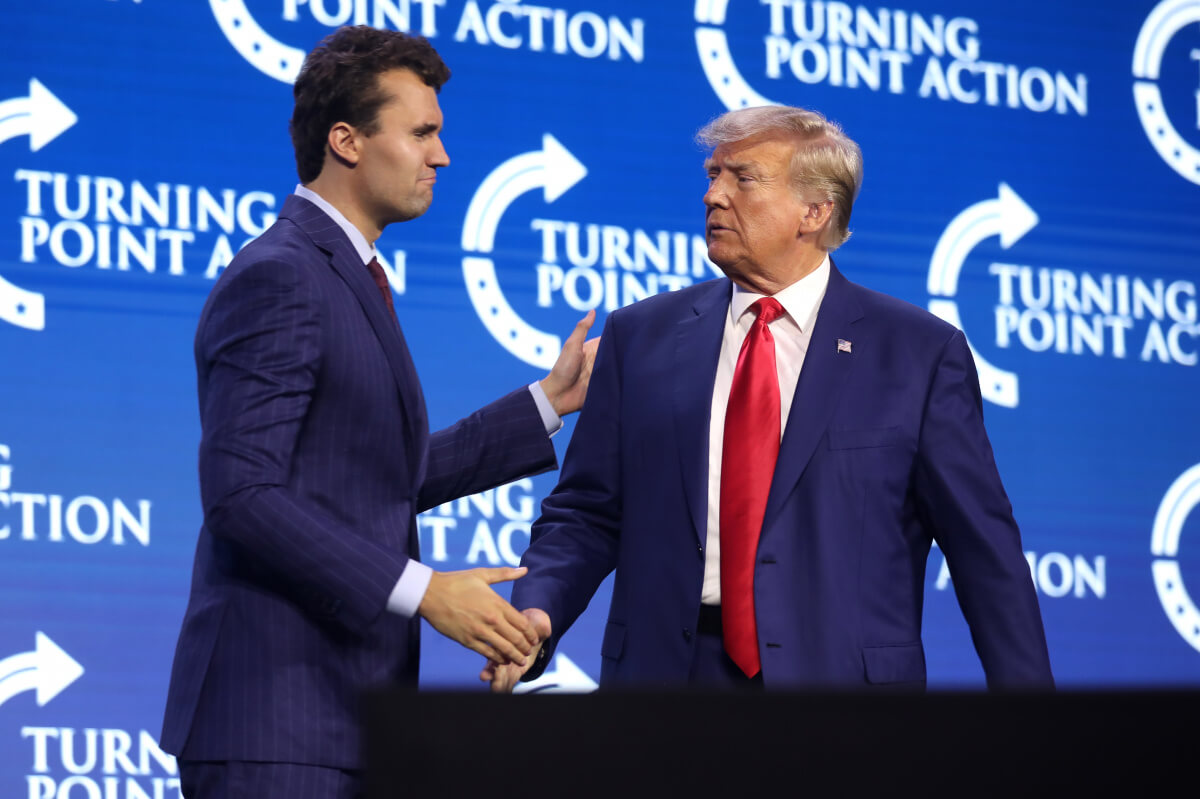UPDATE:
While the motive and identity of the perpetrator remain a mystery, the political fallout continues to deepen, with both sides of the aisle grappling with the tragedy and its implications for the nation’s increasingly volatile political climate.
A Hunt for Clues, A Suspect at Large
Federal, state, and local law enforcement are engaged in a sprawling search for the individual who shot and killed Charlie Kirk on Wednesday afternoon. A joint press conference held by the FBI and the Utah Department of Public Safety this morning provided the first significant new information since the shooting.
FBI Special Agent in Charge Robert Bohls announced that investigators have recovered what they believe to be the weapon used in the attack: a high-powered, bolt-action rifle. The weapon was found in a wooded area where the shooter is believed to have fled after jumping from the rooftop of the Losee Center at Utah Valley University. The FBI is currently analyzing the rifle, along with a shoe impression, a palm print, and forearm imprints collected at the scene.
Officials also released images of a "person of interest" and asked the public for help, offering a reward of up to $100,000 for information leading to an arrest. While no suspect has been identified, Commissioner Beau Mason of the Utah Department of Public Safety said they have "good video footage" of the suspect and that he appeared to be "college-age" and was able to "blend in" with the campus crowd. Authorities have stressed that they are confident this was a "targeted event" and that there is no ongoing threat to the public.
This new information comes after initial conflicting reports yesterday, where two individuals were briefly detained before being released after investigators determined they had no connection to the crime. The ongoing manhunt for the shooter, who remains at large, has left the community on edge.
Mourning and Political Rhetoric
As the investigation unfolds, the political world continues to react to the death of the conservative firebrand. Tributes and memorials have sprung up across the country. In Washington, D.C., a vigil was held at a Capitol Hill church where members of Congress and young conservatives gathered to mourn. In Phoenix, Arizona, the headquarters of Turning Point USA has become a site of pilgrimage for grieving supporters, where a memorial has been growing outside. In a gesture of solidarity, Vice President JD Vance and Second Lady Usha Vance will be flying Kirk's body on Air Force Two to Arizona for a private funeral.
The political commentary surrounding the assassination, however, has grown more pointed. President Trump, in a televised address from the Oval Office, reaffirmed his grief and anger, but went further by laying blame at the feet of "the radical left." He stated that their criticism of figures like Kirk was "directly responsible for the terrorism we're seeing in this country," a sentiment that has been echoed by many on the right, including the "Libs of TikTok" social media account, which simply posted: "THIS IS WAR." This rhetoric highlights the growing divide and finger-pointing in the aftermath of the tragedy.
Conversely, some progressive outlets and commentators have suggested that Kirk's own inflammatory rhetoric contributed to the atmosphere of political animosity. They have condemned the violence in the strongest terms but argue that this tragedy is a product of a culture of political confrontation that has been escalating for years.
A Moment for Reflection
Regardless of political affiliation, the death of Charlie Kirk serves as a grim and potent reminder of the escalating trend of political violence in America. His death, on a college campus where he was engaged in an act of free speech, has forced a national reckoning. The images of a young man, a husband, and a father being gunned down on camera are a sobering sight that has transcended the political echo chamber. It has prompted both Republicans and Democrats to issue a shared call for the rejection of political violence, however, the question remains whether this moment of unity can last, or if it will be swallowed by the same bitter divisions that brought about this tragedy.
Sources: The Associated Press, FBI.gov, The Washington Post, CBS News, The Guardian, and The Wall Street Journal.






